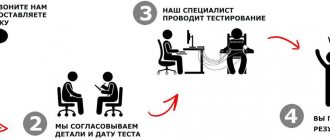Victim psychology is a section devoted to a special, learned type of victim behavior. A separate branch of psychological science, victimology describes not only the characteristics of the victim’s psychology, but also the situations in which this behavior is formed, and the moments of the best way out of stereotypical destructive behavior. If we leave such a serious scientific section, then what remains is a more social psychology of the victim’s behavior on an intuitive level, understandable to many. It is common in society to accept suffering as something positive, something that purifies the soul or demonstrates the positive aspects of a person’s character. This is especially true for women who are constantly forced to pull the burden, who do not have the right to allow themselves insolent pleasure, but who receive support and attention when they begin to complain, get into trouble, or ask in a voice that breaks into tears.
The position of victim psychology spoils life, like bad water - the river itself and everyone who comes into contact, because people are not blind and do not want to be in the trap of manipulation. There is no personal development, as well as her ability to take care of herself, there are only constant complaints and demands. The desire of those around them to do something for such people is less and less, because then they are presented as a tyrant at the slightest refusal.
A child’s infantile position of deliberately reducing one’s own strength and disabling one’s capabilities does not come from the internal innate structure of the personality, but only under the influence of the attitudes of the entire society, which uses negativity in relation to everything as the same manipulation scheme that is used by victims. The victims are not taken into account, their opinion is not asked, but they easily make cutting remarks, physical pushes, betrayals, humiliation, lack of salary increases, etc.
What does it mean to be a victim
These signs will help you understand that you are in the position of a victim.
You have no control over your own life
The victim is forced to have a way of thinking, a pattern of behavior, and even a style of clothing. The steering wheel is almost always in the wrong hands.
Victims are primarily those who spend their lives dictated by other people. They discover that they are doing things that deep down they dislike, or are being drawn into activities that are alien to them, bringing mainly only a feeling of regret.
"How to get rid of the victim complex"
You are operating from a position of weakness
People with a victim complex often believe they are not smart or capable enough to take a proactive stance. Therefore, they choose a position of weakness: they shift important decisions to other people who, in their opinion, are stronger and firmer. Victims avoid independence even in small things: they give up the right to choose a dish in a cafe or obediently go to a movie they don’t want to watch.
Life isn't working for you
If it seems that you spend all your energy and time to please others, are forced to adapt and do what you don’t like out of a sense of duty, you are in the position of a victim.
Anxiety and self-deprecation are your companions
The victims suffer from an inferiority complex. They belittle themselves in every possible way in their internal dialogue and in front of other people. This manifests itself even in small things. For example, a person does not accept compliments, leaves a burnt piece of pie for himself, or agrees to a low salary.
Psychology of the victim - causes and consequences
The position of the victim in psychology is considered as a formed skill, the development of which is influenced by several reasons. From childhood, the formation of a victim type may begin due to reduced self-esteem. Such children look different, cannot fight back or have a verbal argument, they are more easily singled out by aggressive children and it is on them that they take out their anger. Indeed, aggressors feel weak and afraid, and if the child is not confident, then he begins to get into trouble, which further reinforces the fear. Those who were constantly made fun of in the family become targets in adulthood, and those who received their mother's love only after breaking their knee on a bicycle understood that if it became emotionally cold, then you need to get into trouble and they will love you.
The lack of one’s own opinion completely destroys a person’s position, and he begins to adapt to the opinion of a significant other. Over time, someone who changes like a chameleon becomes uninteresting, because you can inspire him with anything. So they stop listening to them and taking their protests seriously, they can cheat on such people, then say beautiful words and know that there will be forgiveness. Such treatment is impossible with those who know their own worth and have their own position in relation to any event - you won’t fool them, but the attitude will be respectful, more careful or something, because it’s scary to lose.
Despite the superficial negative consequences, being a victim turns out to be very profitable, because increased attention is paid to them. Through manipulation, the sufferer can achieve much more than through honest and hard work; in addition, inside this creates a certain image of his own holiness. When a person is a martyr, he gradually becomes a great martyr, and the rest become mere mortals, and this significantly increases the decrease in self-esteem characteristic of victims. It’s just that the method is somewhat clumsy and does not work with everyone, but the object of complaints and worries can always be replaced.
Alternative Behavior: Free and Strong Personality
The opposite state of the victim complex is personal freedom.
Freedom means that no one is stopping you from managing your own life according to your choices. To settle for anything less is to choose a form of slavery.
"How to get rid of the victim complex"
Don’t buy into the tricks of people who suggest that freedom means selfishness and irresponsibility. Responsibility is the result of choice; you take it upon yourself voluntarily. In no case should it fall on you at the whim of someone or under pressure from society.
“The freest people in the world are those who are at peace with themselves: they simply do not pay attention to the claims of other people, because they themselves effectively arrange and direct their lives,” writes Wayne Dyer in his book.
Psychology of the victim in a relationship with a man
The psychology of the victim in a relationship is revealed most fully, because these are close people who find themselves in long-term interactions and often even in moments of psychological dependence. In pair interaction, if a woman chooses the position of the victim, then the entire surrounding world does not become catastrophic; she can solve any problems at work, manage a company of especially dangerous criminals and make complex plans. It all begins at home, where this same woman falls into powerlessness and stupor.
The most popular manifestation is when a man begins to humiliate, insult, beat a woman and in all other ways make life together impossible. From the role of a victim, she will complain to others - this is important, because... if a woman simply lives with a gaslighter or there is violence at home, then she either tries to hide it or solves the problem. The victim does not solve the situation and continues to tell everyone about his misfortunes. As a result, even the most ordinary man turns into a demon, everyone around only advises her to run away, but she remains. There can be many reasons, for example, a woman herself understands that she provokes a man and if she changes her behavior, then he is not a bad person, or she is pleased that she can use the help and support of her friends at any time - this is all a secondary benefit from the psychology of behavior victims.
Typically, this role is played by infantile women who do not make direct adult and open contact with their partner, which causes misunderstandings to accumulate, and all experiences are endured independently in depression. The second type is adrenaline junkies who are looking for a tough man for a special relationship, full of passion and storms; in an ordinary family circle they are bored and it seems that love is gone and only a swamp remains. Also, extremely strong ladies find themselves in similar situations, constantly competing with their husband, which drives him to extreme manifestations of his character and then complains about how they are treated unfairly.
How to get out of the victim position
Follow just two important recommendations.
Believe in your worth and stand up for it
The first step to overcoming the victim complex is realizing the value of your personality. Don't let anyone challenge or diminish your importance. Never put yourself below others.
Start acting like a strong person
Develop the habits of free and independent people, get rid of self-condemnation and complaints about life. Do not expect gifts from fortune, rely on your own strength.
Escape from responsibility
Victim syndrome is not a disease or a personality disorder, sometimes it is a role
, sometimes it is
a psychological defense
that works in traumatic and critical situations (Stockholm syndrome). But most often the role. At first glance, it is unenviable, but if you dig deeper, you will find that the “actors” performing it have many benefits.
The role of victim appeals to many because being an “adult” and taking responsibility for your life is not easy. " Responsibility for your life
is to adequately assess your capabilities and limitations, navigate reality, not give up when you fail, and actively take care of your mental and physical well-being and comfort,”
lists Nadezhda Georgieva.
Photo pexels.com
Practice assertive behavior in everyday situations
To become a strong person, you do not need to perform feats or control others. It is enough to act from a position of strength in ordinary life situations. Practice regularly and over time acting confidently will become second nature.
Here are some tips that you can put into practice every day.
Stop asking others for permission
This, of course, is not about forgetting about politeness and invading other people’s borders. The bad habit of victims is that they ask for permission to do actions that are within their boundaries and should be done without someone else's permission.
Be explicit about your legal requirements or make your intentions clear. Instead of asking “Can I exchange the item?” present the seller with a fact: “I want to return the money for the suit, it doesn’t fit me.” Don't ask your partner if you can go to a party or a football match. Communicate your plans directly, without excuses or blame.
You are an adult and can act in your own interests without someone else's permission.
Show confidence in your conversation
Look your interlocutor in the eyes, speak clearly, without long hesitant pauses or interjections, and do not walk in circles. Posture and facial expressions are very important. Stand straight (slouching is a sign of an insecure person), don’t grimace, get rid of nervous gestures.
Don't help people if you don't want to
This may sound harsh. But how many times have you already lent money when you didn’t want to? Or how many times have you listened to your comrades’ complaints about life simply because it’s what you’re supposed to do? Refusal does not make you a bad and callous person. Remember: if you act like a victim while helping other people, you will be taken advantage of. Do good deeds out of a pure heart and free will, and not out of decency or guilt.
Don't be afraid to talk about yourself and share with other people
Victims often choose every word and fear that any information will be used against them. Don't bother yourself with these kinds of fears. Years of fear of showing your true nature in public causes you to forget who you really are and what you want.
Communication is meaningless and empty if you don't open up to other people.
Of course, the information must correspond to the situation and the degree of trust between the interlocutors. Don't go to extremes. The ability to maintain balance is another sign of a strong personality.
Demand high-quality performance of the services you pay for
Check receipts in stores, bills in restaurants, expiration dates and safety of goods. If you are not satisfied with the quality of services, do not hesitate to request a replacement or compensation. Don't let the people you pay turn you into a victim. Don’t just shrug it off and silently leave the store or restaurant - demand quality service, a replacement dish, or a refund.
Learn and exercise your consumer rights. For your money you have the right to get a good product or delicious food. This does not mean that you should argue and create scandals on any occasion. The client can always vote with rubles - simply refuse to pay for bad service or damaged goods. Going to a restaurant or store that doesn’t give you any consideration is a victim’s lot.
To say goodbye to the role of the victim once and for all, it is enough to make a firm decision to take your life into your own hands. Independence, confidence, a sense of self-worth - these are the basis of the behavior of a free person. If you decide to make this a reality, then Wayne Dyer's book “How to Get Rid of the Victim Complex” will be a great help.
Buy on Litres.ru
Who is a victim and its signs
The victim syndrome in psychology, although extensive, has a very clear and targeted description. You can diagnose this condition both in yourself, by familiarizing yourself with the symptoms, and in others. With yourself you will have to think about whether to leave everything as before or whether there is an opportunity to bring positivity into life, but with others you will need to learn to resist manipulation or completely exclude the person from your life.
Constant complaints regarding one’s own health, work, the situation in the country, or even the weather are considered classics of sacrificial behavior. Absolutely any reason and opportunity to whine is suitable and the victim uses them. If nothing hurts, it means they were overloaded with documents, and if they gave you time off, it means it started raining nasty. Concentration on the negative, its active search and almost drug addiction to notifying others about existing problems. It is difficult for the victim to switch to positive things or even think about what can be done to improve the situation.
The psychology of the victim is such that the feeling most often inherent in it, one might even say the emotional background, is resentment. Everyone around does not understand, they offend and do not care enough about the poor and unhappy person, speak with an offensive intonation or mean something bad under plausible phrases. Grievances are not expressed, they are accumulated, nurtured and carefully stored, but still those around them find out about them, only not through constructive dialogue, but through heavy silence or by a martyr’s expression on their face. This gives rise to a lot of claims to others and a style of interaction with society appears, as if a person is owed everything, and a lot, regularly and on an unrequited basis.
In relation to oneself, a decrease in self-esteem and perception of oneself as a small or teenager is characteristic. Other people always seem smarter, their advice is correct, they reason sensibly. This is a way of shifting responsibility - you don’t think about it, and you’re not responsible for the consequences, because the one who came up with it is to blame. And since the world does not particularly care about those who do not think with their own heads, all sorts of troubles begin and then the victim recognizes the reality as frightening and unsafe. It’s like considering a saucepan bad just because it burned when you touched it without a protective glove. The victims’ perception of reality is very specific and, although it is subject to some kind of logic, it is quite distorted in relation to common sense and the principles of responsibility.
Manipulation is an integral part of the victim’s behavior, because if she suffers, then there must be an offender causing this suffering. When such a person is not found on his own, he is made from someone nearby. The husband can be blamed for the loss of youth, the parents for the ruined fate, the boss for the bad appearance, and so on ad infinitum. The victim always has an enemy who receives maximum claims and provocations. Even the ideal ones will be taken out, they will find something to complain about, they will ask for opposite things at the same time, so that there is a reason to be offended by the failure to fulfill one. For example, they may tell you not to help with cleaning, complaining about your health. Another person falls into a trap where helping means violating a request, and not helping means ignoring that the other is feeling bad. There will be complaints in any type of behavior, because victims can specifically do something for others, even when they are not asked, in order to later be reproached for this.
Small fry with ambition
Trying to convince himself that nothing in this world depends on him, a person with victim syndrome enthusiastically criticizes and blames loved ones, colleagues, bosses, and the government for his troubles and misfortunes
.
Anyone, but not yourself. (No one can cancel objective circumstances, but that’s different.) “The wife of an alcoholic can nag her husband for years for ruining his life instead of figuring out why, firstly, she agreed to marry an alcoholic, and secondly, why she still not divorced or separated.
An employee who vegetates in a low position criticizes his boss behind his back instead of talking directly about the possibility of promotion and salary increases,” the psychologist gives examples.
Another symptom of the syndrome is a persistent reluctance to notice, adequately evaluate, and especially appreciate positive qualities
their "oppressors".
“Let’s say a man earns modestly, but helps with household chores and devotes a lot of time to the children.
A woman with victim syndrome will constantly criticize her husband for being a “poor” because he does not provide high income. The thought that he invests in the family as much as he can and deserves gratitude does not even cross her mind,” says Nadezhda Georgieva.
Photo pexels.com
A person with victim syndrome and an infantile personality does not separate other people's emotions
from his own
.
As a result, if those around him are out of sorts, he is sure that it is solely because of him. “If the husband comes in in the evening in a bad mood, a woman with weak emotional differentiation immediately decides that the reason is her (“It’s because I look bad and I didn’t like my dinner”).
But in reality, he has troubles at work or a part has broken in his car, for which he will have to pay half his salary,” explains the expert.
A mature reaction to the described situation is not to touch the nervous husband, but to note that you see his condition and are ready to listen. If he deems it necessary, he will tell what happened to him; if he doesn’t, he has the right. “Only those who deep down feel themselves to be the navel of the earth (egocents) can consider themselves the main cause of other people’s grief.
There are quite a few people with victim syndrome, and this is surprising only at first glance,” emphasizes Nadezhda Georgieva.
Why does a man leave a female victim?
Here I just want to emphasize: ANY NORMAL MAN WILL LEAVE A WOMAN-VICTIM. First to a bar with friends, then to a weekend of fishing, and then to a lover’s house. Because it is impossible to see this sour face day after day, from which both the mood, the coffee, and the borscht turn sour. It is impossible, day after day, to look at eyes full of pleas and answer the constant: “Do you love me?” And constantly make excuses - because no matter what you do, everything will be wrong.
Another reason: the Victim woman has no fire. No desires, enthusiasm, character. If you offend someone like that, she will swallow, remain silent and smile again. True, every time it gets weaker. If you change it, they will forgive you. It seems that even if you bring a crowd of unshaven, suspicious guys from the street and say: “Honey, they will live with us,” they will agree with this.
Is it possible to avoid turning onto this highway of dashed hopes? Yes! We give a step-by-step recipe.
"Inner child" without projections
How to get out of the shackles of codependency? Berry and Janey Weinhold suggest analyzing our situation and reconsidering our views on many things that seem obvious to us. To begin with, you can take a test to identify signs of unfinished processes in childhood on the codependency scale.
The Wineholds represent the so-called evolutionary approach to the problem.
“Painful and distressing events can be viewed as developmental crises rather than emotional disorders or mental illnesses. Here are key principles to help you understand the causes of codependency:
- Human development is a continuous process, from the moment of conception until death. This process is sequential: one stage helps to form the next;
- any developmental task that could not be overcome at the appropriate age becomes “additional baggage” later. If many tasks are not solved in the required sequence, human development is overloaded and disrupted;
- incomplete stages of development will strive for completion at every opportunity. Any situation that reminds you of some past event at an unfinished stage of development will bring this unfinished process to the fore. People say they are filled with old feelings or memories of the past. They feel like they are rubber-banded to the original emotional experience when they first tried to complete this stage...”
Treason and the Karpman Triangle
Each of us has probably heard sad stories about dysfunctional couples in which the husband continually runs from his wife to his mistresses, then returns again, and the “holy woman” accepts this scoundrel, because she loves him madly. Personally, I believe more in the power of the victim scenario than the proverb “Love is evil...”. And this is what it looks like:
- the wife, playing the role of a tyrant, nags her husband day and night;
- the husband (victim), naturally, needs to find a deliverer, so he finds a mistress;
- but now the wife becomes the victim, the mistress the tyrant, and the husband remains to become the savior for his wife;
- then he returns, filled with pity and “love” for his keeper of the hearth and simply a holy woman;
- the husband himself begins to blame his mistress, now he plays the role of a tyrant, the mistress - the victim, and the wife - the savior (after all, she forgave her unlucky husband).
What do you think will happen next? Right. Everything is new, everything is in a circle, until someone gets tired of it.
The Karpman triangle does not necessarily occur only within interpersonal relationships. The third party may be illness, work (workaholism), alcoholism. For example, the wife of an alcoholic very often actually plays and has chosen the role of the victim. And yes, she will not part with her alcoholic until she herself admits her own game and decides to stop it.
Creative skills
The victim cannot create because he only complains and is afraid to even think about something interesting. If you want to change, try starting small. Even if you don’t notice any special abilities in yourself, continue to act anyway. When the first good results appear, a feeling of comfort will come, associated with peace of mind. And it is precisely this that is so lacking for those people who are accustomed to always feel like a victim in everything.
Thus, the need to work on yourself cannot be overestimated . A person himself must realize that he needs to change and begin to take certain steps. Without this, it is impossible to grow above oneself, to fully develop personally and remain satisfied with the events taking place. If you cannot cope with the problem on your own, you can seek help from the Irakli Pozharisky psychology and rehabilitation center . You won’t even notice how visible improvements will begin to occur. Working with a specialist will help you return to a state of internal satisfaction with yourself. I would like to wish everyone personal transformation and individual victories that can qualitatively improve their life.
Forecast
The position of the victim is one of the most comfortable, because there is always a “good reason” for one’s own mistakes. Therefore, it is often difficult for a patient to part with this “title”.
It is possible to help a person with the syndrome. If you consult a psychotherapist in a timely manner and follow all his recommendations, the patient can return to a normal, healthy life. But quite often this also requires the help of friends, family, and loved ones. They must stop sympathizing and assenting to the patient's pitiful speeches. Instead, during the conversation, you should ask direct questions that will help the person evaluate all his actions and thoughts adequately. Only in this case will the eternal victim finally turn into a healthy and cheerful person.
What does the victim really want?
It's hard to believe that someone voluntarily wants to be constantly humiliated. Why do some people strive for the role of victim, voluntarily making themselves a punching bag? In fact, the victim wants:
- get pity
- attention,
- warmth,
- care,
- Love,
- Gratitude,
- sympathy,
- compassion,
- to be significant
- to be needed.
A person with a victim mentality knows only one form of love - pity. So he tries, with the help of others or, feeling sorry for himself, to receive love. The victim is only happy when he suffers. That’s why she always suffers, something is always wrong in her life. It’s not easy to admit this to yourself, which is why only a few decide to fight it.
How the game comes about
The initiator is always the victim. She throws invitations both ways: “beat me” and “save me.” In this case, the victim displaces aggression, as well as:
- does not see his own resources, denies their presence;
- refuses to make decisions;
- ask for advice;
- afraid of responsibility;
- avoids independence with the help of “yes, but...”.
The aggressor represses his own vulnerability and displays active, passive or punitive anger. The Deliverer displaces powerlessness, devalues the victim, takes responsibility and makes decisions for the victim, his phrase: “Why don’t you...”.
Perhaps the game “why would you...”, “yes, but...” is the most popular. Such couples can exchange these phrases for hours, but the problem will remain unresolved. Only one thing will change: the victim will receive a portion of energy and attention, the deliverer will assert himself.
If you notice that you yourself often play such a game, then make it a rule to immediately answer “I can’t help you” if:
- the question has nothing to do with your competencies;
- you clearly understand that they want to shift responsibility onto you;
- you often hear first a request, and then “yes, but...”, but do not see actions on the part of the person asking for help.
I know from personal experience how difficult it is. But it's worth it. Sooner or later, the victim will leave you alone, and you will be able to direct your strength wherever you want, and make decisions only for yourself, so that later you will not be to blame for other people’s troubles.











